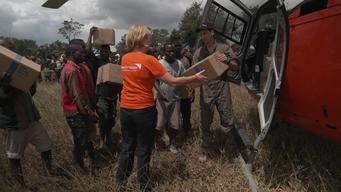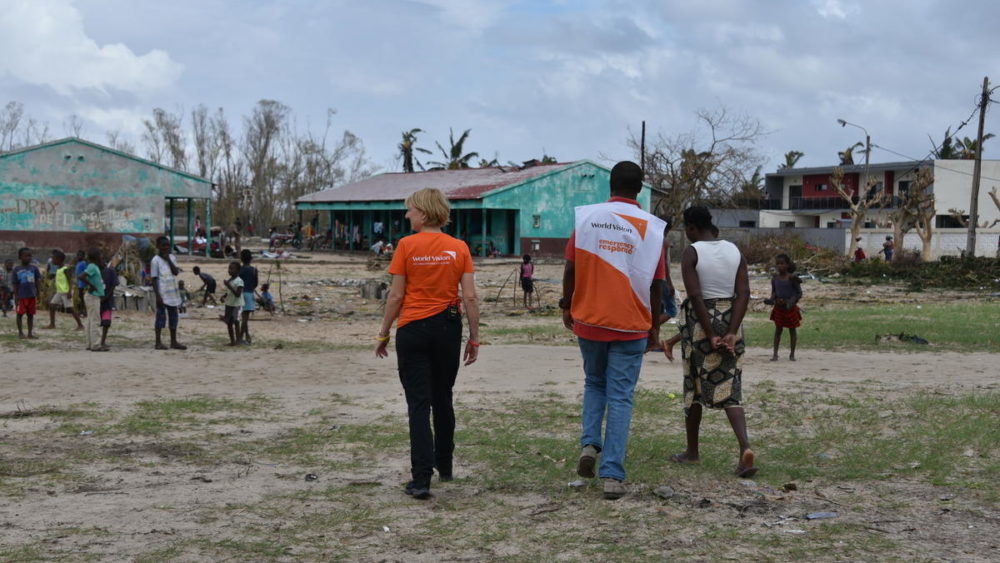Children are at risk of sexual violence and trafficking in the chaos following Cyclone Idai, which hit southern Africa between March 15 and 19, leaving an estimated 750 dead and more than two million homeless in Zimbabwe, Malawi, and Mozambique.
In response, World Vision is setting up child-friendly spaces to protect children who have been separated from their parents.
“Tiny babies in Beira’s main hospital died when the electricity for their care went out. This chilling fact demonstrates how children are always the most vulnerable in disasters like this,” said World Vision Australia CEO Claire Rogers, who left Australia last Friday for Mozambique.
“Many children are on their own, unable to find their parents in the post-cyclone rescue chaos. We must act fast to protect child survivors from sexual violence and trafficking.”
A World Vision spokesperson said the first priority this week was getting aid through to the submerged villages surrounding the city of Beira, a port city on the coast of Mozambique, which was 90 per cent wiped out by the storm. Roads have been underwater, hampering rescue efforts. Some communities are only accessible by helicopter or plane, and were forced to wait on rooftops for aid.
We’re troubled by reports that children are being taken to overcrowded orphanages or camps where they won’t be protected. — Claire Rogers
Concurrently, child-friendly spaces and humanitarian supports were being established, with the first already set up in Malawi. With more than one million children affected by the cyclone and its aftermath, World Vision is co-ordinating with local government and other NGOs to decide target areas for child-friendly spaces.
Over the weekend World Vision reached more than 3500 people in Zambézia province with tents, tarps, blankets and mosquito nets and should reach tens of thousands this week.
Carey Lodge Ellis – Claire Rogers – Beira – Claire Rogers helps deliver aid 
“Planeloads of aid are arriving and we’re using locally available supplies but with some communities only accessible by air, getting aid to those who need it urgently is taking longer than we’d like,” said Rogers, who is concerned that rising floodwaters will bring fresh dangers to those without shelter, clean water and food.
“The child-friendly spaces we’re about to set up will be safe places for children to rest and play. We’re troubled by reports that children are being taken to overcrowded orphanages or camps where they won’t be protected.”
World Vision is concerned about the long-term impact on vulnerable children, as girls in Zimbabwe already suffer high rates of sexual violence, and Mozambique and Malawi have critical rates of child marriage.
“Disasters can force parents into sending their young daughters into marriage to cope with increased poverty. We must remember just how vulnerable children in parts of these countries were before this one-in-a-generation disaster hit last week,” said Rogers. “On the ground, we’re working hard to get aid through, help families rebuild their lives, and protect children.”


